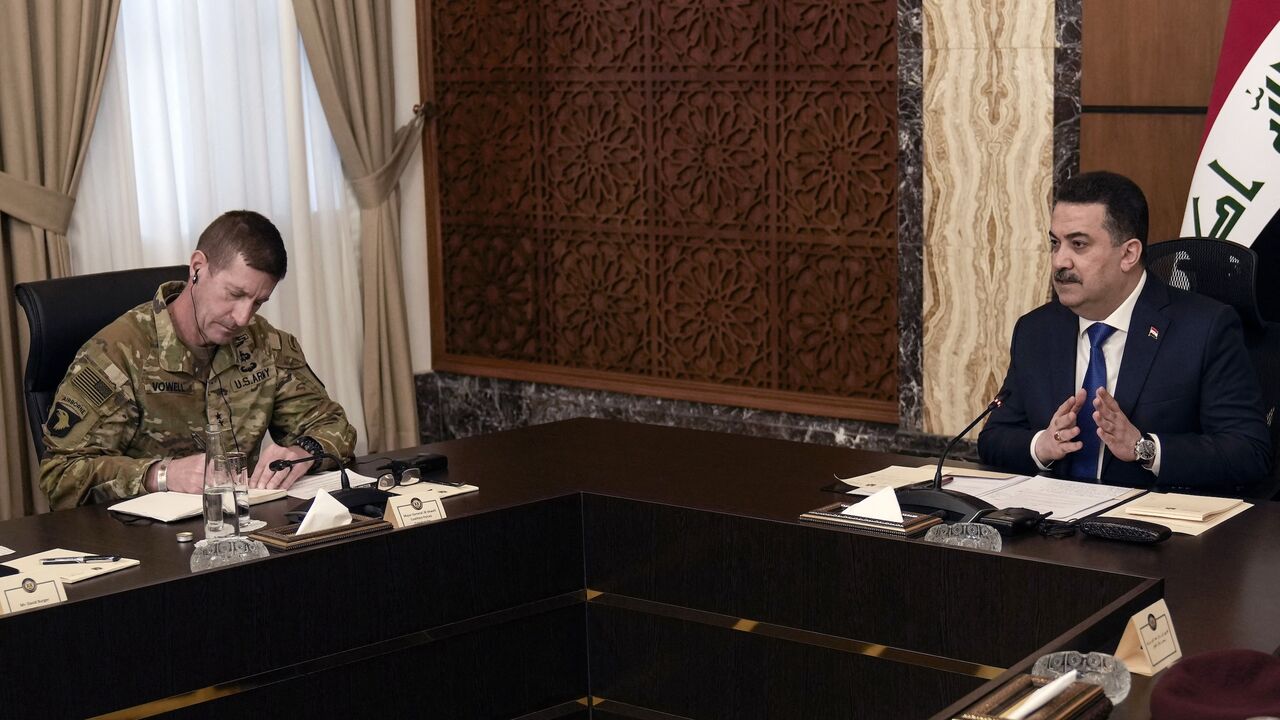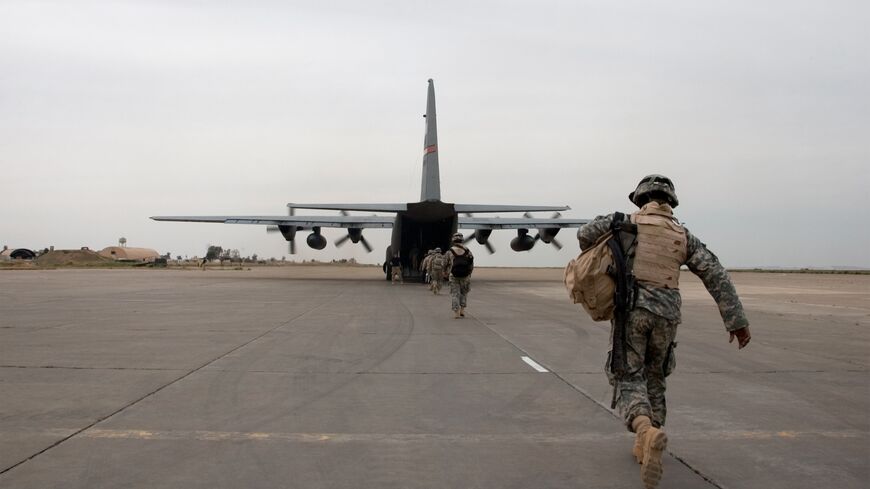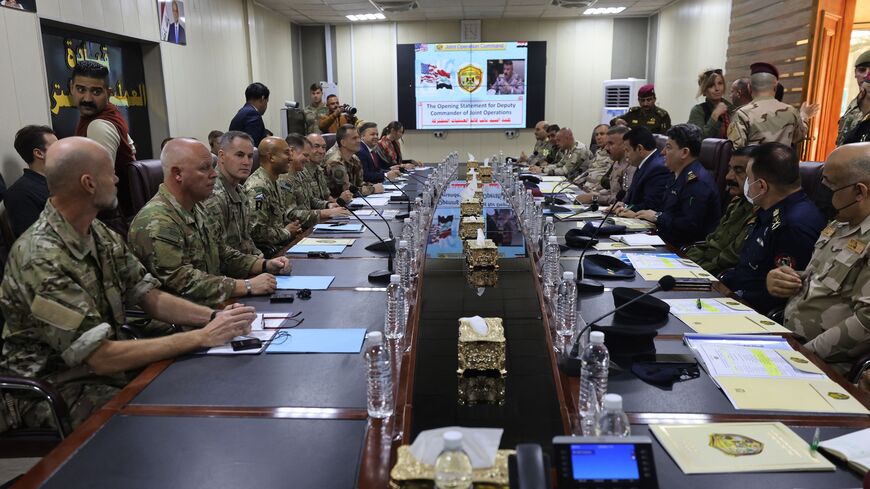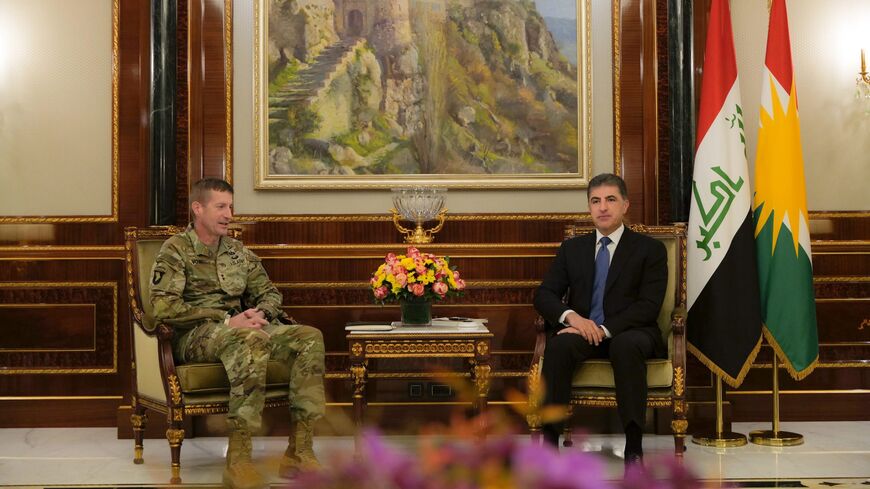As tensions with Iran rise, US resumes talks with Iraq on troop presence
Attacks fall silent as Shia bloc in parliament pushes petition to expel American troops from Iraq.

WASHINGTON — US and Iraqi officials met in Baghdad on Sunday for a second round of talks over the future of the American-led military coalition in the country.
Pentagon press secretary Maj. Gen. Patrick Ryder said the meetings marked "another important step along the path of transition" and that the two sides discussed “the threat of ISIS, the operating environment and Iraqi security forces’ capabilities."
A statement released by Iraq’s Supreme Military Committee said the ultimate goal of the talks is to establish a timetable “for a gradual reduction leading to the end of the [coalition’s] mission” to defeat the Islamic State group.
American officials have pushed back on that characterization, insisting the dialogue track is not a negotiation over a potential withdrawal of US forces from Iraq, but rather that it aims to set the stage for more “normal” bilateral defense ties.
What that means: The Biden administration is laying the groundwork for long-term US military ties with Iraq while also seeking to alleviate rising political pressure on Prime Minister Mohammad Shia al-Sudani.
Sudani faces renewed calls from predominantly Shia blocs in parliament to oust American forces from the country after the US military launched a series of airstrikes against Iran-backed militias in the country.
US strikes in recent weeks, which the Pentagon assesses have killed more than 40 militia personnel, came in retaliation for the more than 170 attempted rocket and drone attacks on bases housing US troops in the country.
Late last month, a US drone strike assassinated a senior Kataib Hezbollah official who American officials alleged was the group's top commander in Syria.
The projectile attacks by Iran-backed militias — a recurrent problem in recent years for the US troops still present in Iraq — resumed in October 2023, ostensibly in retaliation for Washington’s support for Israel’s war against Palestinian militants the Gaza Strip.
Iraq’s parliament speaker announced over the weekend that the body had drafted a petition bearing signatures from more than 100 lawmakers urging the expulsion of American forces from the country.
Speaker Mohsen Al-Mandalawi, of the Shia coordination framework, then sent the petition to the legislature’s defense and legal committees for consideration. Local outlets reported Sunni and Kurdish MPs largely refrained from the session.
Why it matters: Some 2,500 US troops remain in Iraq as advisors to the Iraqi government in the wake of the war against ISIS, according to official numbers released by the Pentagon.
Iraq declared the Islamic State group defeated in 2017, and the jihadist faction’s last territory in neighboring Syria was captured by US-backed, Kurdish-led fighters at Baghouz, near Syria’s eastern border with Iraq, in March 2019.
Working groups of US and Iraqi defense and diplomatic officials aim to assess ISIS’ continued strength and capabilities as well as the Iraqi military’s competencies a decade after much of Baghdad’s forces collapsed when confronted of the jihadist group’s lightning advance toward the capital in 2014.
Based on those assessments, US officials have said they may discuss “transition formations" — or potential changes to the US military’s footprint in Iraq — with representatives of Sudani's government.
What’s next: The dialogue kicked off late last month, after some five months’ delay amid a wider confrontation between the US military and Iran and its proxy militias over Israel’s war in the Gaza Strip.
“As long as nothing disturbs the peace of the talks, the meetings will occur periodically,” Iraq’s military said in the statement released Sunday.
US officials have privately communicated to Baghdad that they will not discuss a potential drawdown of the coalition’s footprint while bases used by US troops are under fire by Iran-backed groups, Al-Monitor previously reported.
Biden administration officials continue to say there has been no formal request by the current Iraqi government to withdraw US troops from the country.
Know more: The United States also maintains some 900 troops in Syria, who remain dependent on the coalition's footprint in Iraq. Biden’s National Security Council has begun preliminary discussions on what an eventual US military exit from Syria would look like, Al-Monitor’s Amberin Zaman reported exclusively last month.
Syria’s top Kurdish commander, Mazlum Abdi, warned Al-Monitor and other journalists last week that Iran-backed militias have begun turning their drones against his forces. Mazlum and at least one other top Syrian Kurdish official have vowed a response.
Iraq's parliament previously passed a nonbinding resolution in early 2020, calling on American troops to leave the country after the United States assassinated top IRGC Quds Force commander Qassem Soleimani in Baghdad.






